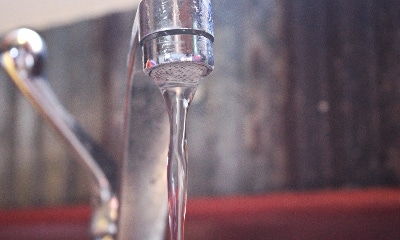March 23, 2016

The human body is more than 70% water and it needs to be replenished every day. But how safe is the water you're drinking?
Many farmers have a private well. And according to University of Missouri Extension water quality specialist Bob Broz, private wells should be tested once a year.
"Mainly what we want to check for is E. coli bacteria," Broz says.
Several years ago, a Centers for Disease Control and Prevention survey showed that about one in two private wells in Missouri had high levels of bacteria.

TEST FARM WATER: A Centers for Disease Control and Prevention survey showed that about 50% of private wells in Missouri had high levels of bacteria. Test your drinking water to make sure it is safe.
Broz says well owners should contact their county health department and get a water test bottle. The small bottle will include instructions for collecting a water sample and sending it to a state-certified testing lab.
Broz recommends collecting and shipping your sample early in the week for prompt testing. "They don't want you to send it on a Thursday or Friday," he says. "That water sample will sit somewhere not being properly handled for three or four days and that may mess up the test."
Well owners may also want a domestic suitability test, particularly if it's a new well. The MU Soil and Plant Testing Laboratory will do a suitability test for $35. Broz says it provides information on hardness, pH, nitrates, sulfates, copper and other things that may be found in water in Missouri. He notes that your well water may be safe to drink even if it's not aesthetically pleasing due to high levels of minerals.
"Testing for bacteria once a year is one way to keep you and your family healthy," Broz says. "Testing for bacteria doesn't guarantee the water is safe, but it reduces the concern of a bacterial infection."
If your well tests positive for bacteria, follow the procedures for shock chlorinating your well. A wellhead protection assessment can help identify ways contamination might be getting into your well. For more information, the MU Extension guide "Bacteria in Drinking Water" (WQ102) is available for free download.
You May Also Like




